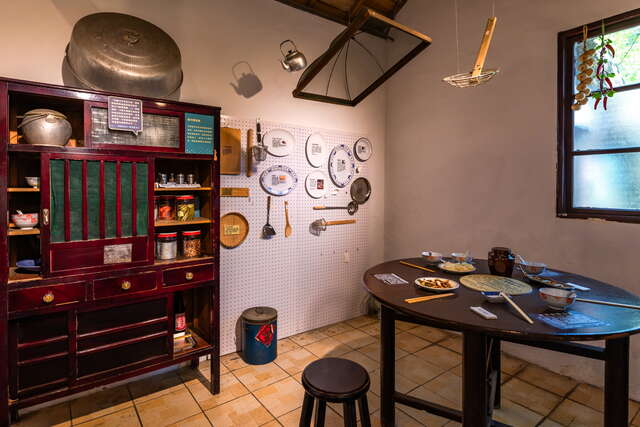Matsu New Village Cultural and Creative Park Introduction
Matsu New Village was established in 1957 as a residential area planned for the families of the soldiers stationed on the Matsu Islands. It once gathered many high-ranking military officers' families and was renowned for its "starry nights." Today, Matsu New Village has undergone the test of time and has become an important hub for preserving the culture of military dependents, making it worthwhile for travelers to slow down and savor its charm. The unique appeal of Matsu New Village lies in its fully preserved military dependent village style, where the design of the living quarters vividly reflects a microcosm of life based on ranks and power distribution, authentically recreating the living conditions of that era. In 2004, the Taoyuan City Government designated Matsu New Village as a historical building and carried out renovations based on the concept of "restoration while revitalizing," successfully transforming it into a model of integration between military dependent village culture and creative industries, allowing the once-thriving scene to flourish once more. Heart of Film and Culture in Matsu New Village enters the Zhongli Light and Shadow Cinema, where you will feel the unique cultural rhythm of Matsu New Village. This cinema, rich in artistic atmosphere, has 75 seats and serves as an important base for local film education. Regular themed film exhibitions and selected movies held monthly not only provide citizens with free visual feasts but also attract many film enthusiasts for appreciation and交流交流. Artistic Regeneration of Historical Spaces The No. 1 to No. 3 military dependent quarters in Matsu New Village have now splendidly transformed into the "Matsu Experimental Art Gallery," a platform showcasing creations that attracts many young artists and cultural workers. The annual open call for exhibition submissions has turned spaces that originally carried the history and living memories of the military dependent village into vibrant venues full of cultural creativity, becoming an excellent platform for artistic and creative exchange. Family-Friendly Cultural Garden Amid the scenic beauty of the military dependent village, visitors can experience the endless charm of art with their children. The "Matsu Art Institute," restored from the former Matsu Kindergarten, is currently planned as a base for nurturing children's art, offering interactive spaces for parents and children, along with performance and cultural education activities, to integrate art into life, promoting cultural education from a young age. Explore Unique Artisan Shops in Matsu New Village Matsu New Village provides a space for artisans to showcase their skills and creations, featuring many distinctive small shops within the area. It is not only a great place for photos but also offers various delicious small restaurants and handmade popsicle shops, allowing visitors to savor the flavors of the military dependent village while experiencing the unique allure of Matsu New Village. Furthermore, the area offers diverse activities such as handmade fragrances, pottery creation, leather carving craftsmanship, and qipao customization and experiences, making it an excellent choice for leisurely relaxation on weekends.




































